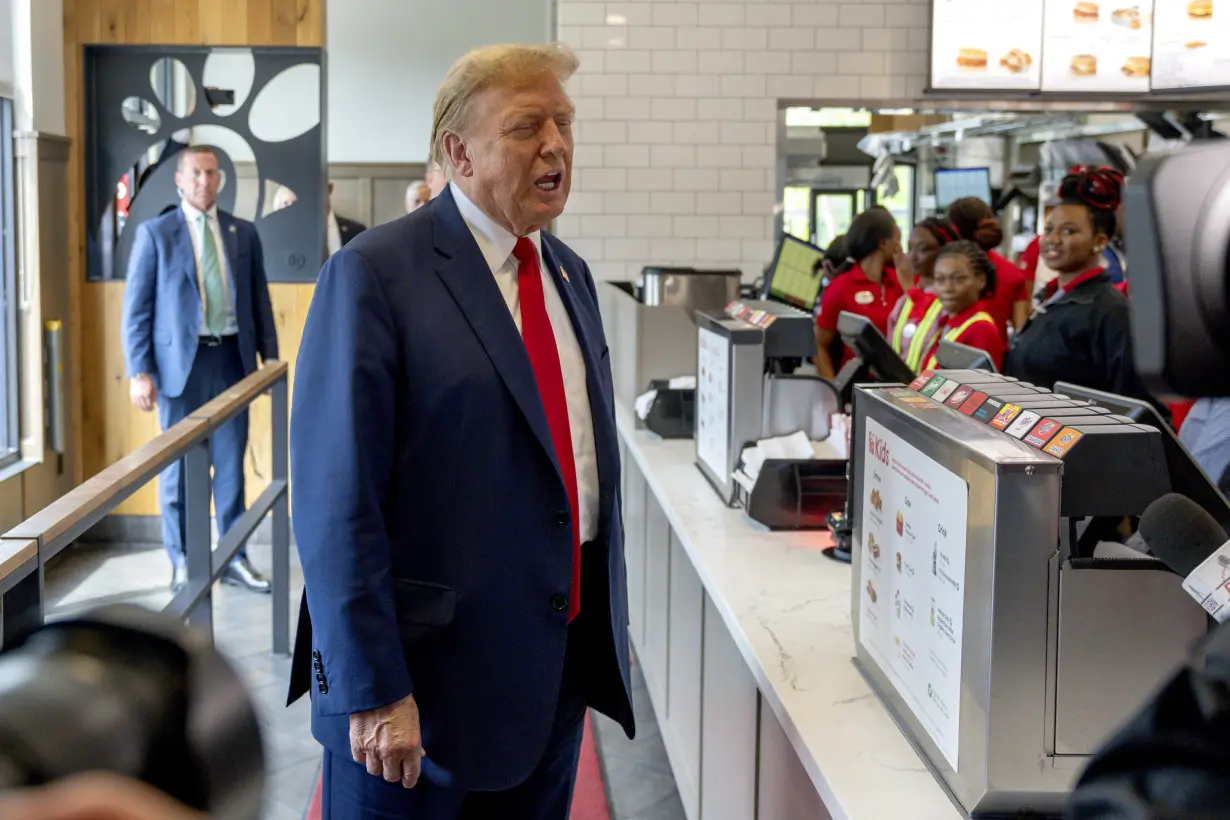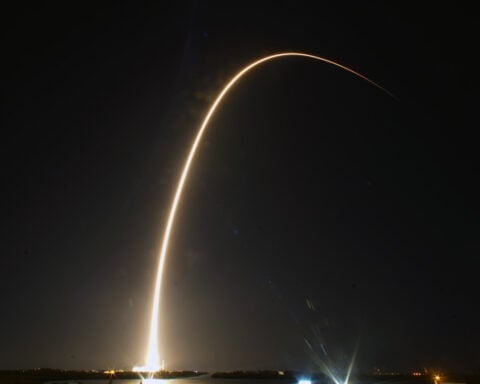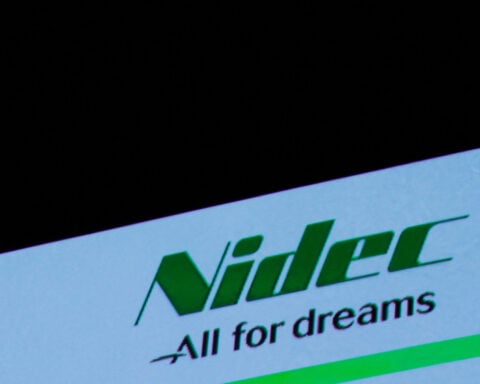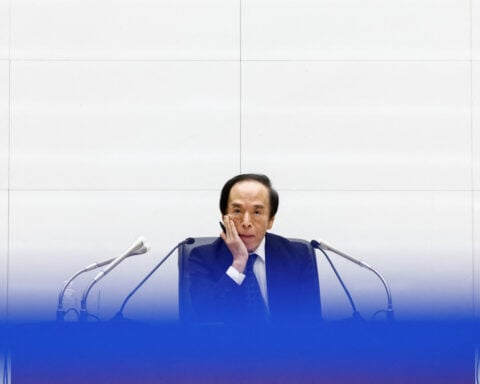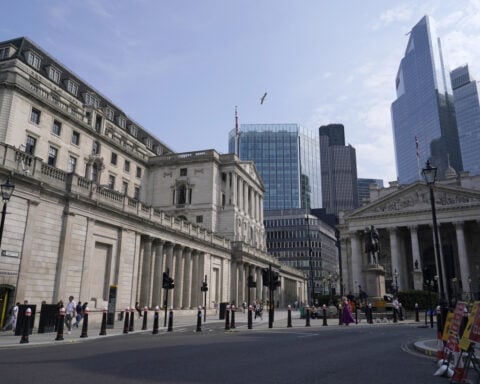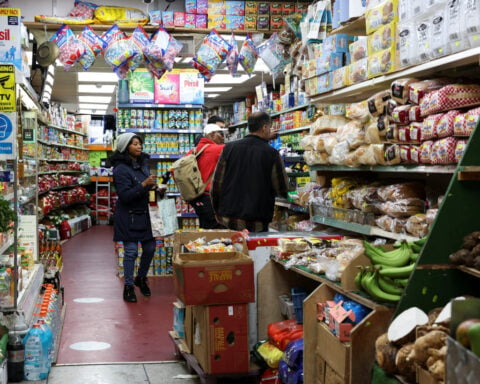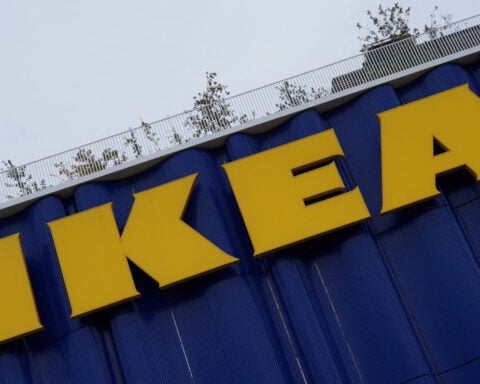WASHINGTON (AP) — The scenes of Donald Trump being warmly greeted on Wednesday by a Black audience at a Chick-fil-A restaurant in Atlanta electrified conservative political media at a moment when Republicans hope to make inroads with Democrats’ most committed voting bloc.
Those widely shared moments were days in the making, an alliance between the Trump campaign, local activists, and students at some of the nation’s most iconic historically Black colleges.
Trump and his allies have argued he can win greater Black support due to his messages on the economy and immigration, a notion President Joe Biden's campaign rejects. Some of his outreach to African Americans has played on racial stereotypes — promoting $399 branded sneakers or suggesting that Black people would empathize with his dozens of felony charges — and has offended longtime critics and some potential allies.
But the campaign considered Wednesday's photo opportunity at Chick-fil-A, a stop he made on the way to a fundraiser in Atlanta, a win that produced viral videos shared by his allies and widely discussed by supporters and opponents alike.
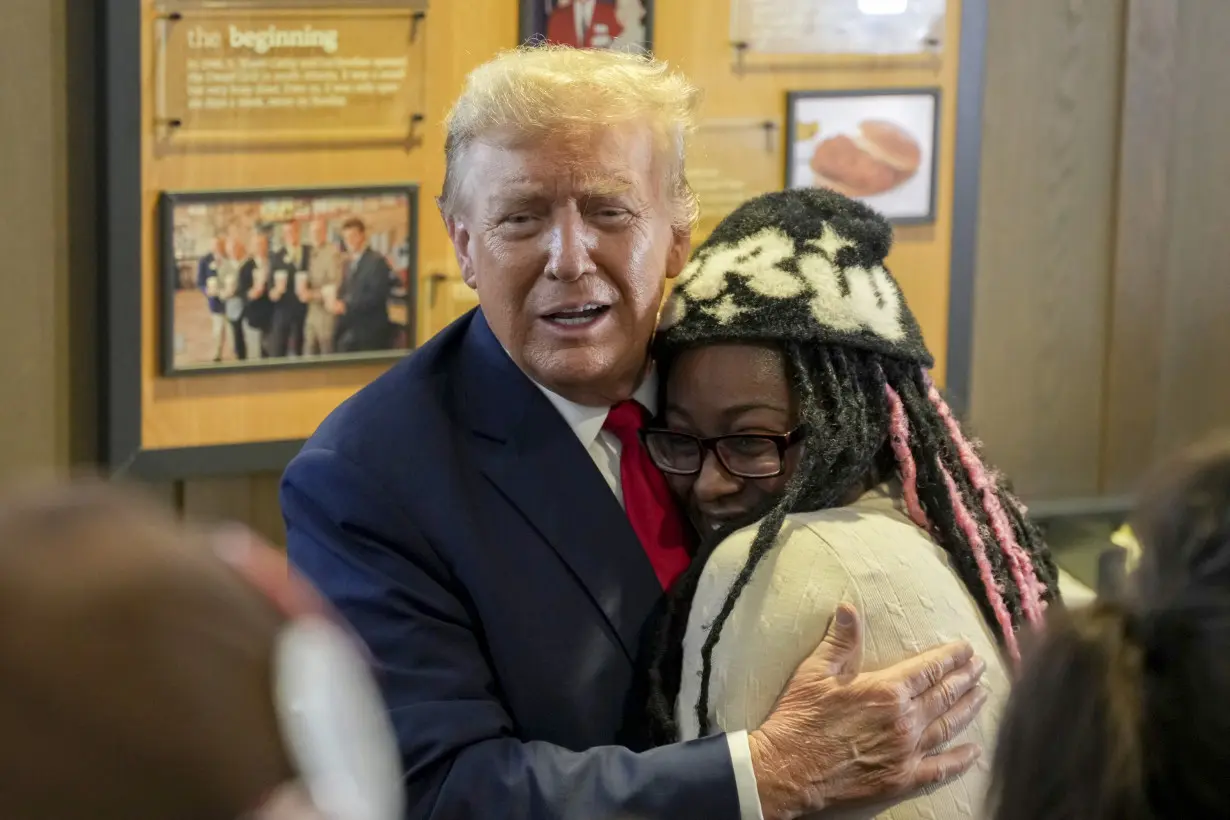
“People find it so hard to believe that there are young Black people who would have loved the opportunity to meet Trump,” said Michaelah Montgomery, a conservative activist and founder of Conserve the Culture, which recruits and educates college students and young alumni at Atlanta's historically Black colleges and universities.
Montgomery, a former Georgia Republican Party staffer who regularly coordinates events for HBCU students open to conservative ideas to meet with politicians and activists, said she was notified earlier in the week that Trump would visit Atlanta's Vine City neighborhood during his trip to host a high-dollar fundraiser in the city. She notified a private group chat of students she uses to coordinate events and job opportunities about the president's visit. She received immediate interest in appearing alongside him from around a dozen students.
“Everybody got together at around 9:30 in the morning and walked on over to the Chick-fil-A and then we sat there and waited until the president showed up,” said Montgomery, who can be seen embracing the former president in multiple viral videos. “It’s really disheartening to see that the media makes it seem like we just stumbled into a Chick-fil-A and he bought us milkshakes."
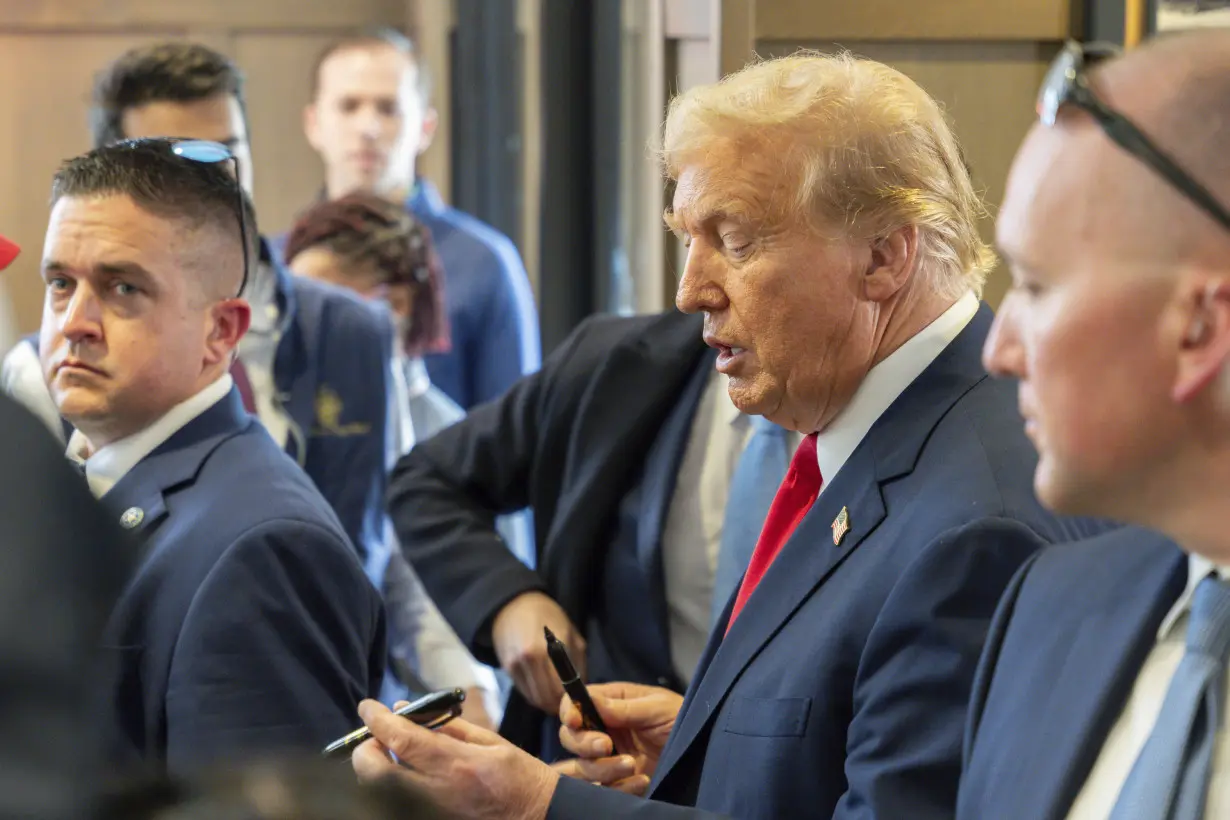
Morehouse and Spelman Colleges are some of the foremost historically Black colleges in the nation, with long legacies of influential Black alumni in politics, business, religion and medicine. Martin Luther King Jr. and Georgia Democratic Sen. Raphael Warnock, who pastors King’s former church, are both Morehouse alumni. Stacey Abrams, the influential Georgia Democrat, attended Spelman. Alongside neighboring Clark Atlanta University and Morris Brown College, the academic collective on Atlanta's West Side has served as a bastion of African American politics and culture since before the Civil Rights movement.
Trump’s overture to students at the iconic Black institutions both underscored his eagerness to show any potential inroads with Black voters as well as the campaign’s strategy of partnering with local conservative groups to marshal a crowd in communities outside the GOP base, a common political tactic with a slight twist.
“The location was beautifully selected and I think it had an incredible impact,” said Bill White, a businessman and longtime friend of the former president who organized the high-dollar luncheon for the Trump campaign in Atlanta’s Buckhead neighborhood the same day. “I just thought the day was a resounding success for him and for the people in Georgia who loved him and wanted to come out and show their support.”
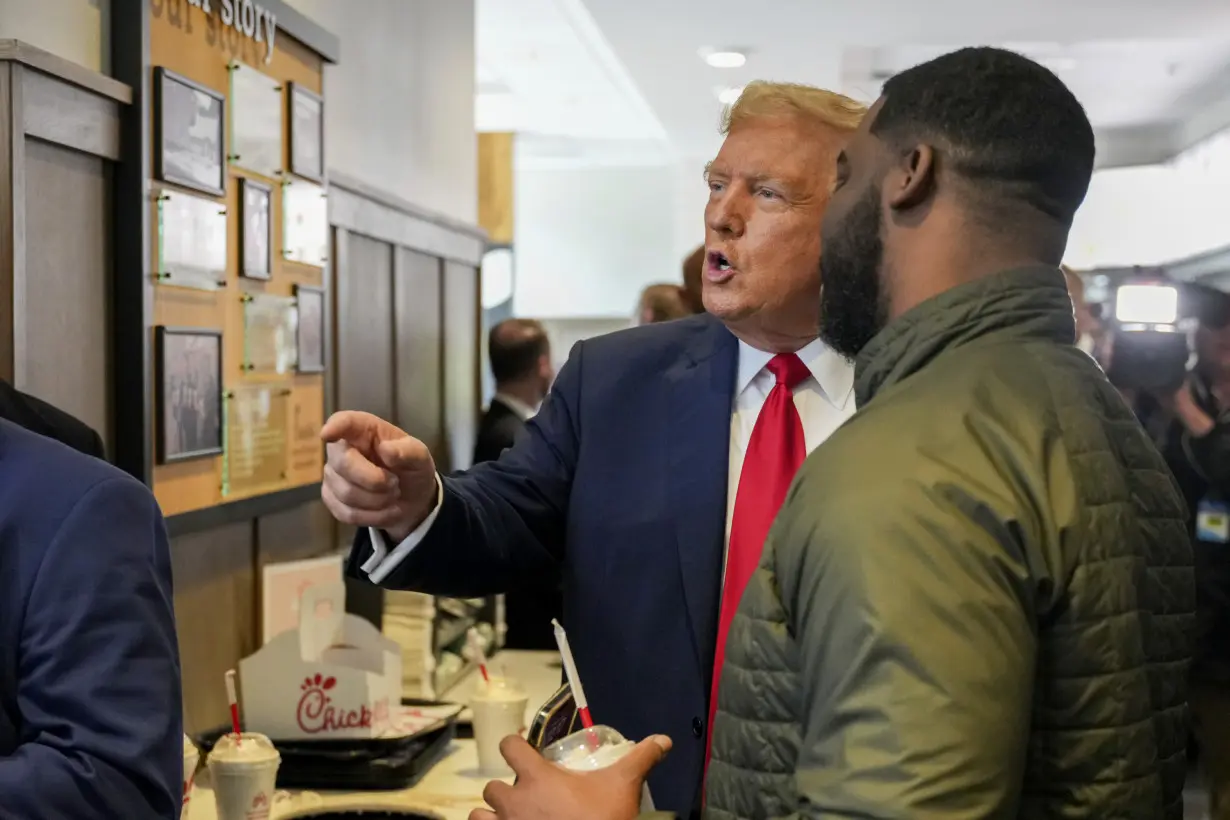
White added that Donald Trump “is very relatable to anyone, really. Atlantans got a chance to see that and show their love back” and he anticipates Trump will make major inroads with Black voters in Atlanta and across the country due to events like his Wednesday visit.
In March, 55 percent of Black Americans said they approved of Biden's handling his job as president while 45 percent disapproved, according to a poll by the AP-NORC Center for Public Research. But a February poll found only a 25 percent favorability rating for Trump among Black Americans.
The visit was not met with fanfare by some on campus or the local community. Montgomery denounced the criticism some students who appeared in the viral videos alongside Trump have received both on campus and online.
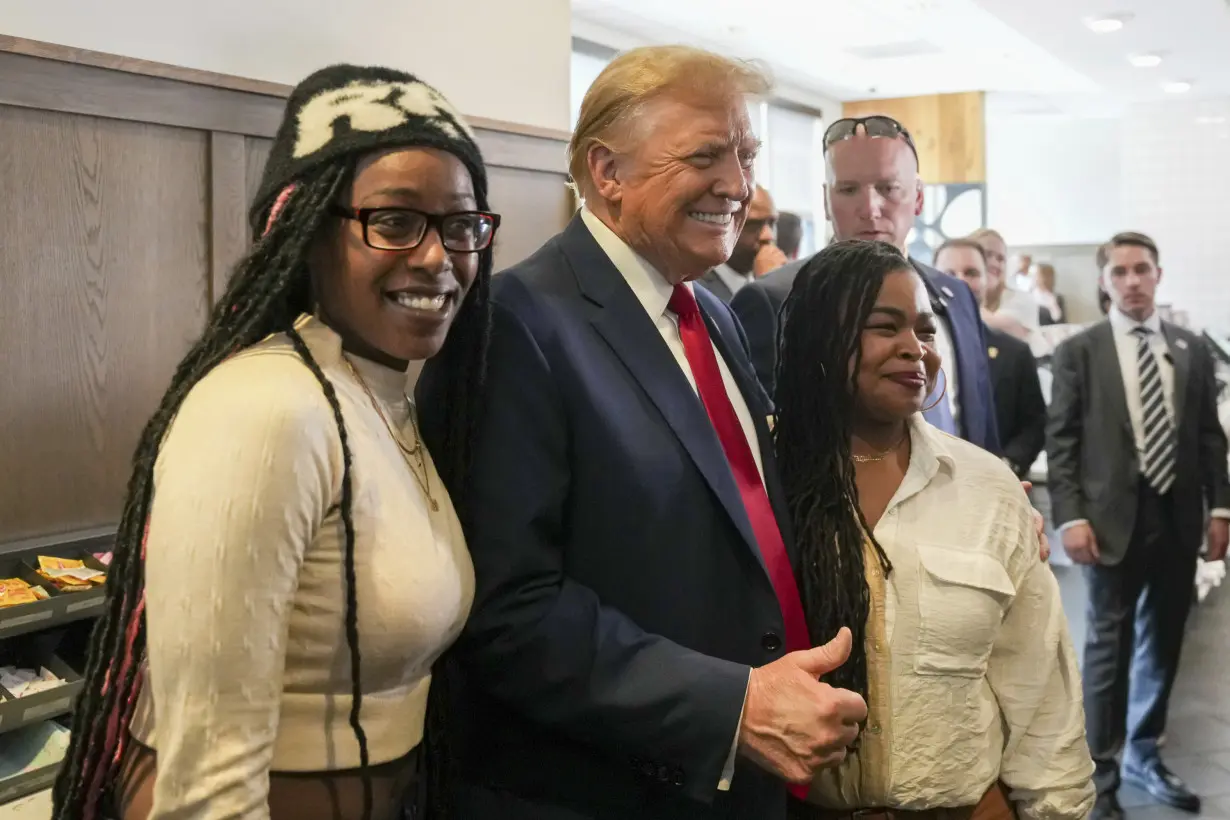
“They are claiming that the students made a mockery of their institutions and saying that they are disrespecting their ancestors. It is really, really bad,” said Montgomery.

 Body count from South African mine siege rises to 60
Body count from South African mine siege rises to 60
 US importers rush in goods from China as Trump tariff threat looms
US importers rush in goods from China as Trump tariff threat looms
 China's RedNote: what you need to know about the app TikTok users are flocking to
China's RedNote: what you need to know about the app TikTok users are flocking to
 Novak Djokovic breaks a tie with Roger Federer for the most Grand Slam matches in tennis history
Novak Djokovic breaks a tie with Roger Federer for the most Grand Slam matches in tennis history
 Japan finance minister flags action against excessive foreign exchange movement
Japan finance minister flags action against excessive foreign exchange movement
 British author Neil Gaiman denies ever engaging in non-consensual sex as more accusers come forward
British author Neil Gaiman denies ever engaging in non-consensual sex as more accusers come forward
